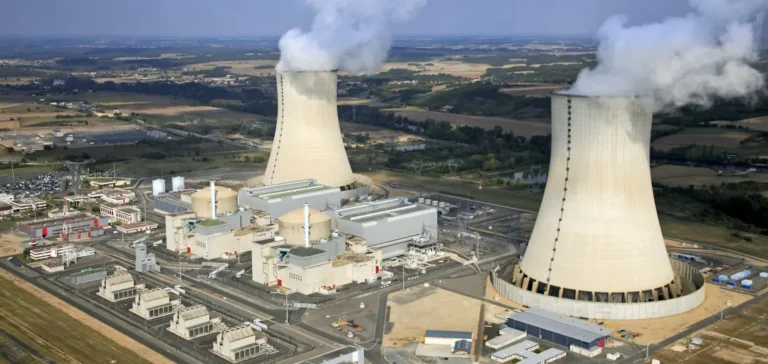EDF announced that it has detected two minor defects on piping in the cooling circuit of its reactor number 2 at Civaux. These defects specifically involve stress corrosion cracking (SCC) and thermal fatigue, both identified on welds of the primary cooling system. The energy group quickly confirmed that these findings pose no immediate risk to the safety of the facilities or the production targets of the nuclear fleet. According to EDF’s estimates, restarting the reactor will experience only a slight delay, estimated at about two weeks.
Nature of Detected Anomalies
Stress corrosion cracking had previously been identified in 2021, causing a series of extended shutdowns across several reactors in France’s nuclear fleet the following year. This corrosion manifests as micro-cracks caused by the combination of stainless steel material under mechanical stress and exposure to a specific chemical environment. Thermal fatigue, meanwhile, is a common phenomenon in the nuclear sector, linked to repeated temperature fluctuations within cooling circuits. EDF clarified that the size of the observed cracks remains very modest, between one and two millimeters, on piping significantly thicker than this measurement.
Starting in 2022, EDF implemented a systematic inspection plan covering several hundred welds considered sensitive. Since early 2025, around 200 inspections have already been conducted on the five reactors deemed most vulnerable to these risks, with only these two anomalies detected at Civaux thus far. One of the affected welds had already been replaced preventively in 2022, prompting EDF to extend its investigations to precisely understand the recurrence of stress corrosion cracking.
Operational and Industrial Impact
The group emphasized that necessary repairs on the affected components have already begun, causing only a minor shift in the scheduled timeline for the reactor’s restart. Civaux 2’s restart is now set for July 30, compared to the initial forecast around mid-July. EDF stresses that these adjustments will not impact annual nuclear production targets or industrial programs such as tritium production, essential for France’s nuclear deterrence program.
These incidents occur in a context where EDF is reinforcing its inspection and maintenance protocols across its installations, part of a broader strategy of repair industrialization initiated three years ago. For next year, three additional reactors will be included in the comprehensive inspection program. This approach aims to promptly identify any potential signs of wear or corrosion, enabling proactive industrial risk management.






















